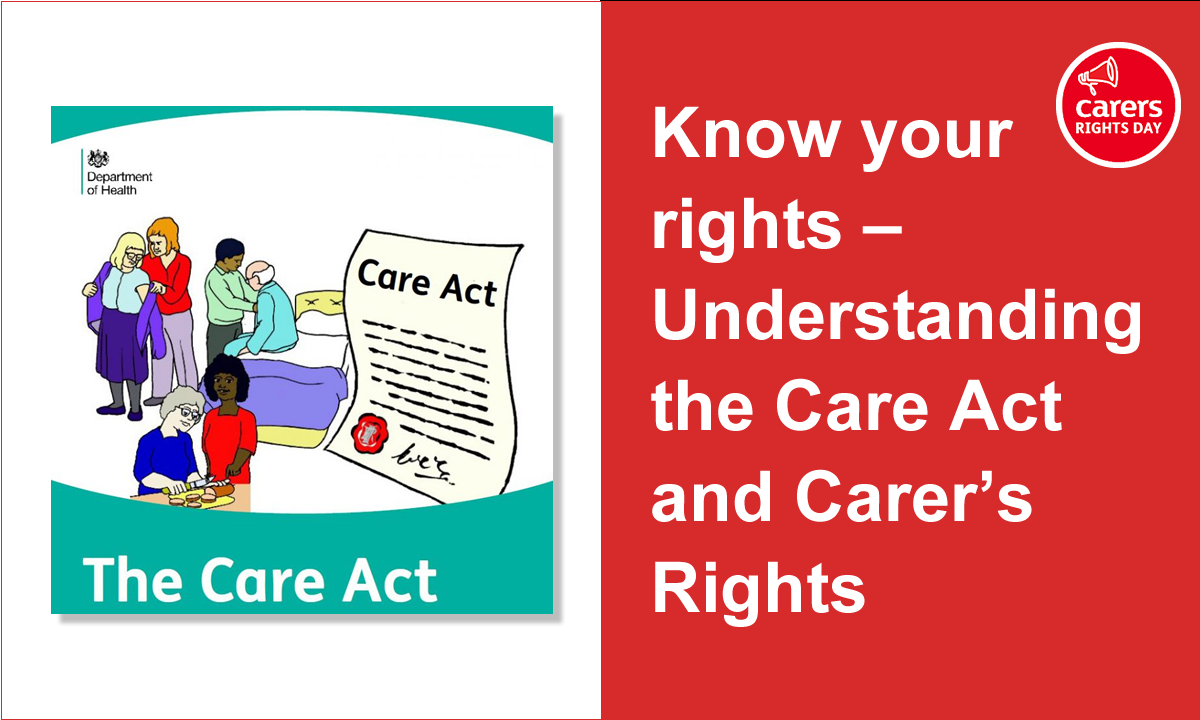To mark Carers Rights Day 2022, Richmond Carers Centre in conjunction with Not a Care in the World, ran a workshop to ensure carers are aware of their rights and how to assert those rights. The law is there to protect carers from the impact of their caring role. Carers have specific rights under The Care Act 2014, which came into force in April 2015. Even at the simplest level, just knowing you have protection in law can make a difference to how you feel as a carer.
Your responsibilities
It is important to remember there is no legal obligation to be a carer. Carers have the right to choose. You may feel there is a moral obligation to care for a loved one. However, willingness and ability should not be assumed. If someone is coercing you to be a carer then this is against the law.
The cared for have the right to choose who is caring for them. However, just because you are that person’s carer doesn’t mean you have to do everything all the time for that person.
The Local Authority’s responsibilities
The Local Authority must provide services to address carers’ need for care and support in its area. It must be proactive in identifying carers in need of support and offer a Carers Assessment. A Carers Assessment is designed to highlight a carer’s needs and it is the Local Authority’s responsibility to meet those needs. Additionally, it has a duty to provide information and advice, to promote wellbeing and, where possible, to prevent carers from needing support.
How is wellbeing understood under the Care Act?
The Care Act statutory guidance (Chapter 1) requires the Local Authority to take account of people’s wellbeing. ‘Wellbeing’ is a broad concept. It is described as relating to the following areas in particular:
- personal dignity (including treatment of the individual with respect)
- physical and mental health and emotional wellbeing
- protection from abuse and neglect
- control by the individual over their day-to-day life (including over care and support provided and the way they are provided)
- participation in work, education, training or recreation
- social and economic wellbeing
- domestic, family and personal domains
- suitability of the individual’s living accommodation
- the individual’s contribution to society.
The wellbeing principles are part of the eligibility criteria for support and caring should not be quantified by the amount of hours care is provided but rather by the impact the caring role has on the carer. If this impact is having a significant and detrimental impact on their wellbeing, the Local Authority has a duty of care to support the carer in helping to reduce this. They also need to take into consideration the impact of a disabled person’s needs on the carer’s wellbeing and the relationship between them.
It is important to remember that the cared for does not have to be engaging in services for someone to be considered a carer. Nor does the cared for be someone that you live with. It can also be someone living in a residential care home that you are continuing to care for.
The Care Act and The Family Act
- The Care Act protects and supports those caring for an adult
- The Family Act protects and supports those caring for a child
Carers have the right to determine what they are willing and able to do as a carer. ‘Willingness’ is important. If someone is not willing to take on their caring role, there is potential for resentment to build up that could impact their mental wellbeing. Carers are entitled to have a life alongside a caring role. Further, you can make changes at any time to your caring role and do not have to wait for an annual review.
Things to remember in your caring role
The responsibility for the provision of care lies with the Local Authority. It is their Duty of Care. The Local Authority must take into account the views of the carer when considering provision for the cared for person.
If you are in employment, you have the right to request flexible working. You may not be granted this, but you have the right to request it.
Keep written notes of issues arising in your caring role and these will help support you with completing a carer’s assessment and ensuring that you get adequate support. You can invite a trusted friend or professional with you to any meetings. You are entitled to this and it can be helpful.

